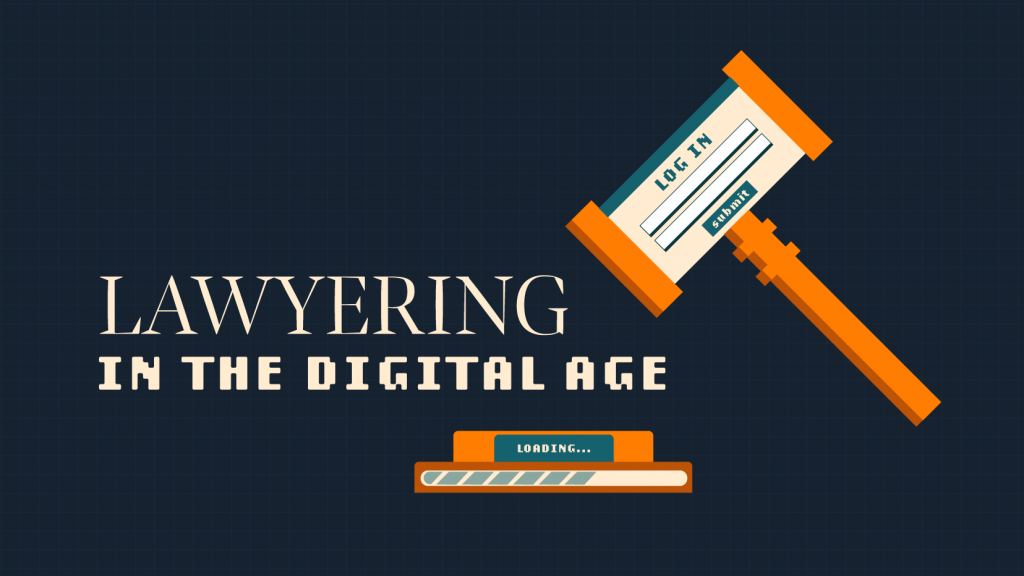
By Jess Clarke
The impacts of the digital age on lawyering, as on most professions, will be ongoing as new technologies are developed. Lawyers in all areas of practice should expect many changes and, importantly, stay abreast of advancements, some Carolina Law faculty and alumni say.
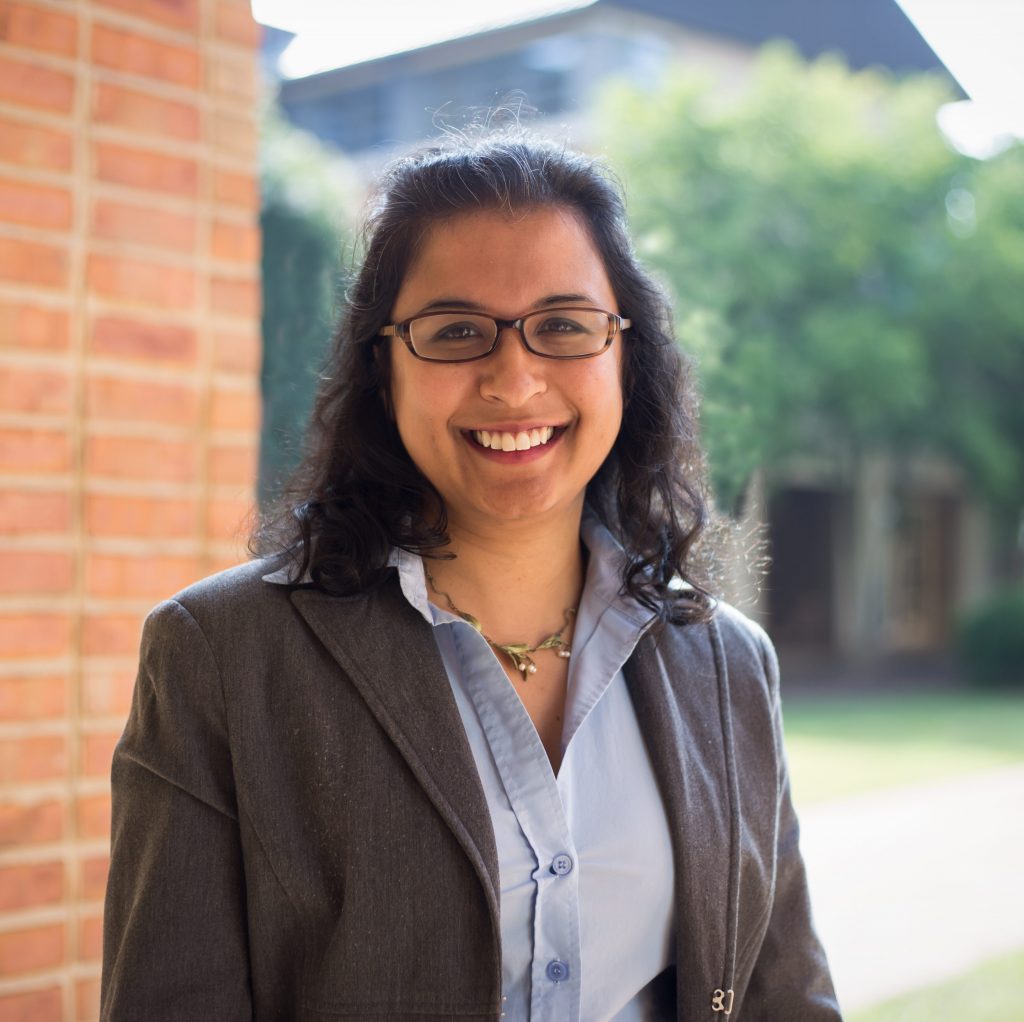
With new technologies often driven by consumer interest, “Lawyers really have to keep their eye on the court of public opinion to have an idea of what they might face in their practice,” says Raina Haque ’12, a professor of practice of technology at Wake Forest University School of Law.
Student interest can generate initiatives that support the study of law and technology. One example is Carolina Law’s new Artificial Intelligence Decision-Making Research Program (AI-DR), which associate professor Ifeoma Ajunwa founded and directs.
The law school also offers classes on digital technologies and related issues. Students learn about electronic discovery and many other digital tools in Law Practice Technologies, a course taught by Stacey Rowland, clinical associate professor of law and assistant director for collection and technology services in the Kathrine R. Everett Law Library. A course on technology and civil rights is being taught this semester by Neema Singh Guliani, Twitter’s head of national security, democracy, and civil rights public policy for the Americas. The class includes students in the School of Information and Library Science.
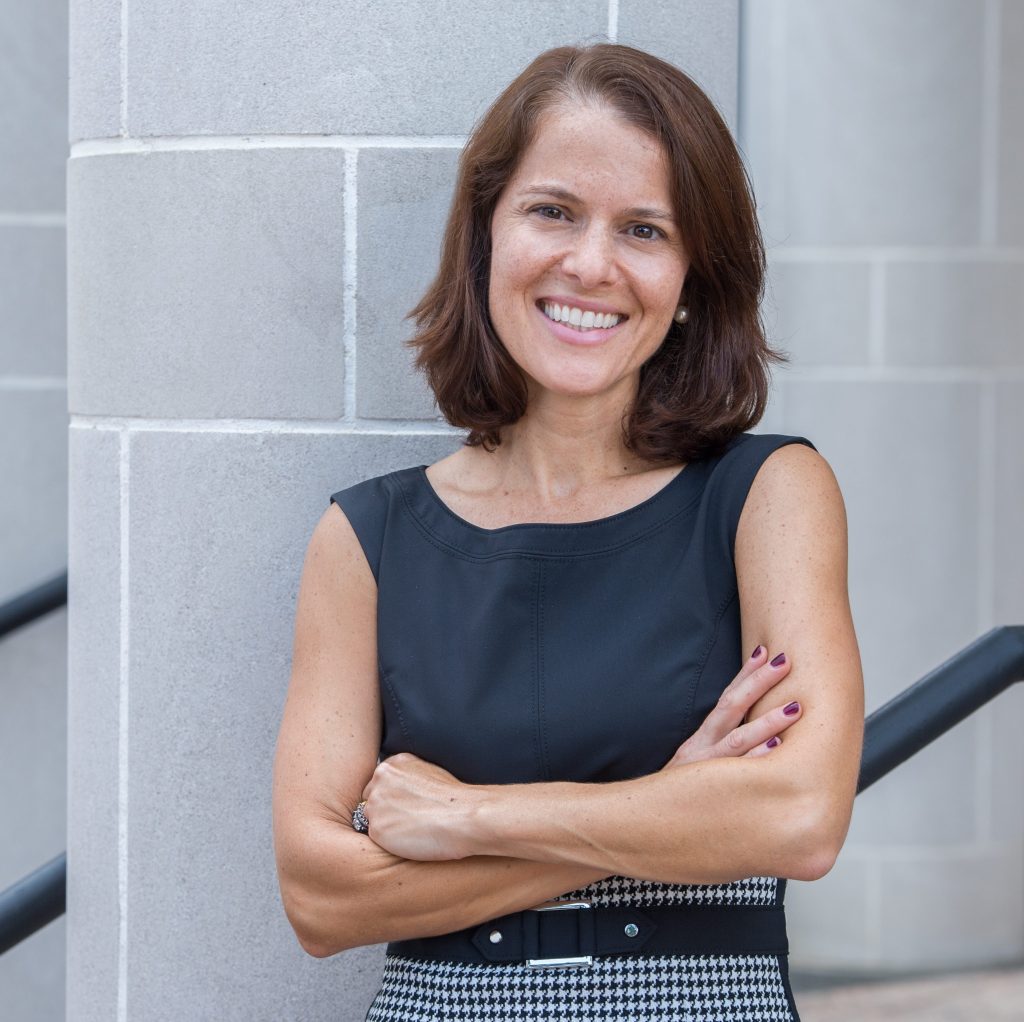
“We definitely are building a curriculum to prepare our students to be lawyers in the digital age,” says Mary-Rose Papandrea, Samuel Ashe Distinguished Professor of Constitutional Law at UNC School of Law.
Here are some areas of digital technology that impact the practice, and study, of law.
Privacy & Cybersecurity
Facial recognition technology. Home security systems. Automated home devices. Cameras in self-driving cars. DNA databases. E-commerce.
More and more people and businesses are looking over their shoulder now, as such advanced technologies raise concerns about privacy and cybersecurity breaches.
“Sometimes people think these technologies are creepy” because of how personal information could be collected and used, says Anne Klinefelter, Henry P. Brandis Distinguished Professor of Law at UNC School of Law and director of the law library. “If there’s a new technology, you can count on it impacting privacy.”
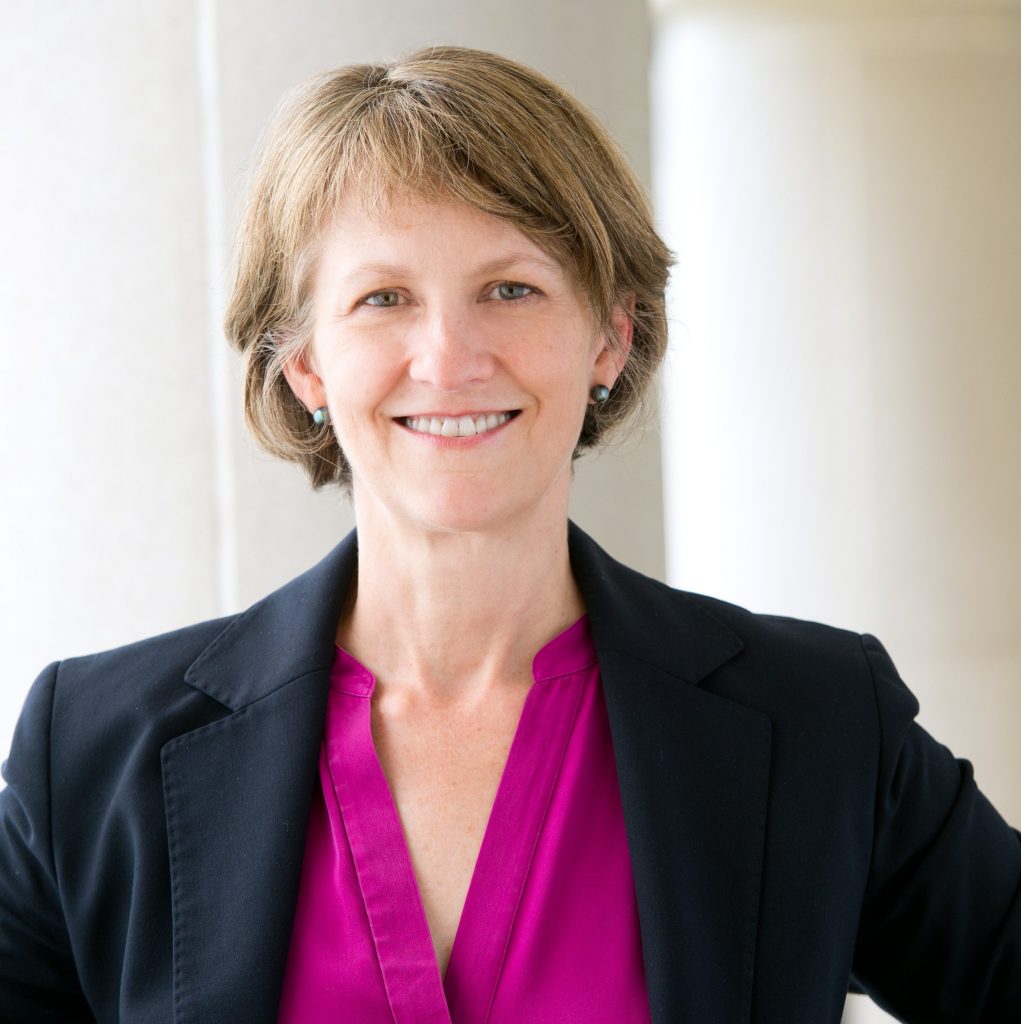
These technologies also significantly impact lawyering.
“Almost all sectors of practice will intersect with privacy issues,” Klinefelter says. “Lawyers have an ethical obligation to stay competent not only in the law but in related technologies, so they can protect client confidentiality.”
Attorneys advising clients who sell a service or product around the country must stay abreast of differences in privacy laws among states and such sectors as banking and health care.
Privacy is a key issue with advanced media and technology, including digital advertising, online payment technology and e-commerce. The crux is what kinds of information businesses and websites can collect about consumers and how much of what’s collected consumers should know about up front.
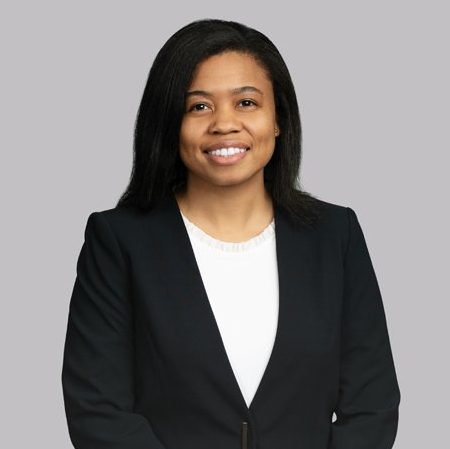
“Many companies think they’re being transparent, but consumer advocates want more transparency,” says Chanda Marlowe ’17, an associate at Loeb & Loeb LLP in Washington, D.C., who works with privacy and data security law.
Some businesses are clarifying privacy policies, using a shorter summary or cartoons or videos to explain, notes Marlowe, who focuses on advertising technology in business.
“Many companies are trying to find ways to give consumers more control over their data because consumers are more aware of privacy issues. And that’s becoming more important to our clients. We have to explain things in a way consumers understand,” she says.
Closely linked with privacy is cybersecurity, and the main issue now is increased ransomware attacks, which encrypt data and prevent a computer system from operating. Money is extorted in exchange for the encryption key.

Lawyers who represent victims of attacks, usually businesses, must advise clients on whether to pay a ransom. “It’s complex because the federal government discourages paying ransoms since doing so encourages this behavior,” says Matt Cordell ’07, vice president and general counsel for digital and privacy issues with VF Corporation.
“But an organization that’s hemorrhaging money every day due to an attack has a strong incentive to pay a ransom if it’s less than the amount they’re losing,” he says.
Lawyers “have to look at whether paying a ransom would violate a law in certain jurisdictions,” Cordell says. The U.S. and some other countries prohibit paying ransom to certain sanctioned countries and organizations.
The American Bar Association and North Carolina State Bar recognize a specialty in privacy and data security law. Cordell chairs the state bar committee that certifies lawyers in the specialization—the first of its kind in the U.S. “North Carolina is a pioneer in this area,” he says.
As the technology sector continues to pioneer advancements, the law always lags, Klinefelter notes. Technology developers don’t want regulations that could hinder their work.
“In the U.S., we let marketplace innovation live as a wide-open frontier,” she says. “All kinds of great things can happen with new technology, but there are tradeoffs. We have to grapple with how to regulate these spaces.”
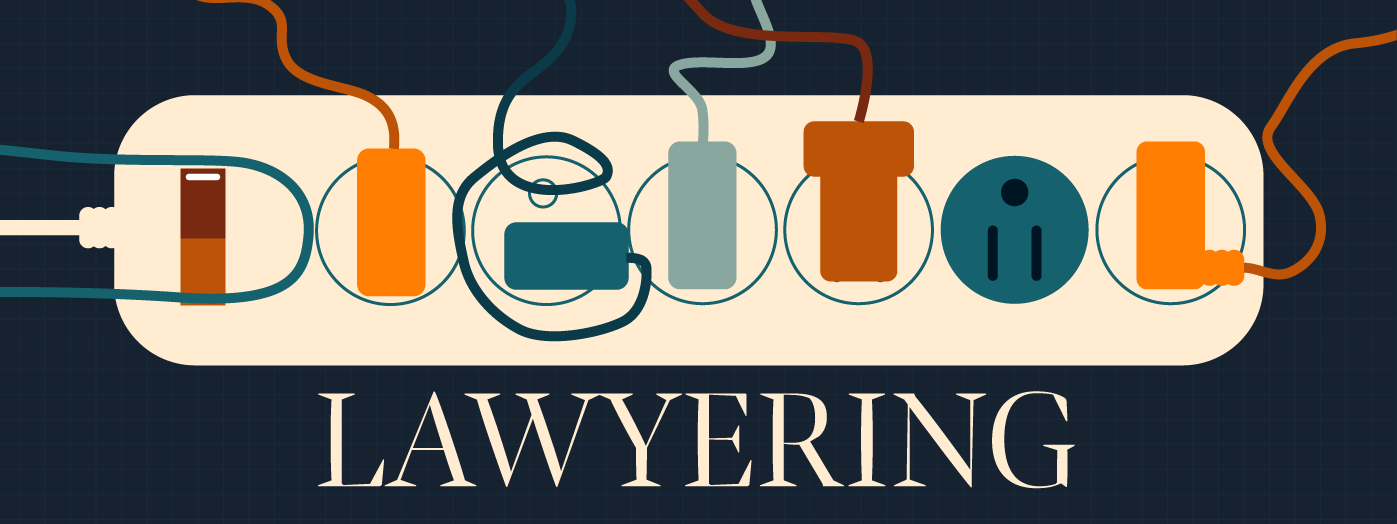
The First Amendment & Social Media
When the U.S. Supreme Court took up the free-speech Brandi Levy v. Mahanoy Area School District case in 2021, it marked the first time the court ruled in a social media case.
It may not be the last time, as social media becomes more prevalent and is increasingly scrutinized by Congress.
Even though some, or all, of the high court justices may never have used the photo-messaging application Snapchat, the platform involved in the Levy case, social media could become more common in First Amendment cases before U.S. courts.
Judges generally have discounted statements made on social media in defamation cases, says Mary-Rose Papandrea, Samuel Ashe Distinguished Professor of Constitutional Law at UNC School of Law. “If something’s in the New York Times, that’s one thing. If you have a statement made on Twitter in 280 characters or less, they don’t take it seriously.”
That’s changing.
“It has slowly been improving…Lawyers have had to explain to judges what social media is, why people use it, and how they use it,” says Papandrea, a First Amendment and media law expert.
Sometimes judges ask technical questions about social media, so lawyers themselves need to be conversant with platforms. For lawyers who don’t use social media, it’s a learning curve.
“In time, courts will not as quickly discount the statements made on social media,” Papandrea says.
Historically, though, the Supreme Court has been slow to move in areas that involve technology. That tendency was evident in the Levy free-speech case last year.
On Snapchat, Levy posted a message with profanity in 2017 because she didn’t make the varsity cheerleading team at her Pennsylvania high school. She posted the message off school property on a weekend. The school reprimanded her and suspended her from the junior varsity team because of the content.
The court ruled in Levy’s favor that the school’s actions violated her First Amendment rights. But the narrow ruling, specific to Levy’s case, didn’t suggest more generally how schools could address off-campus speech.
“The main question in this area is whether the usual rules for the First Amendment apply, or if these cases fall under the authority of schools to restrict speech,” Papandrea says. “In the end, the Supreme Court didn’t give us an option that provides a lot of guidance going forward. The court seems very unwilling to issue broad rulings in the area of social media.”
Still, lawyers in nearly every sector need to be well-versed in social media, given its widespread and growing use.
As communication platforms have changed, the practice of media law has evolved. “The internet is everywhere, and social media is very much part of the fabric of our society,” Papandrea says. “All lawyers must become internet lawyers of some kind and familiar with how social media works.”
Artificial Intelligence
With artificial intelligence (AI) increasingly prevalent, related technologies will give rise to new regulations for the evolving field and create ongoing ethical and legal issues for lawyers to address in advising clients.
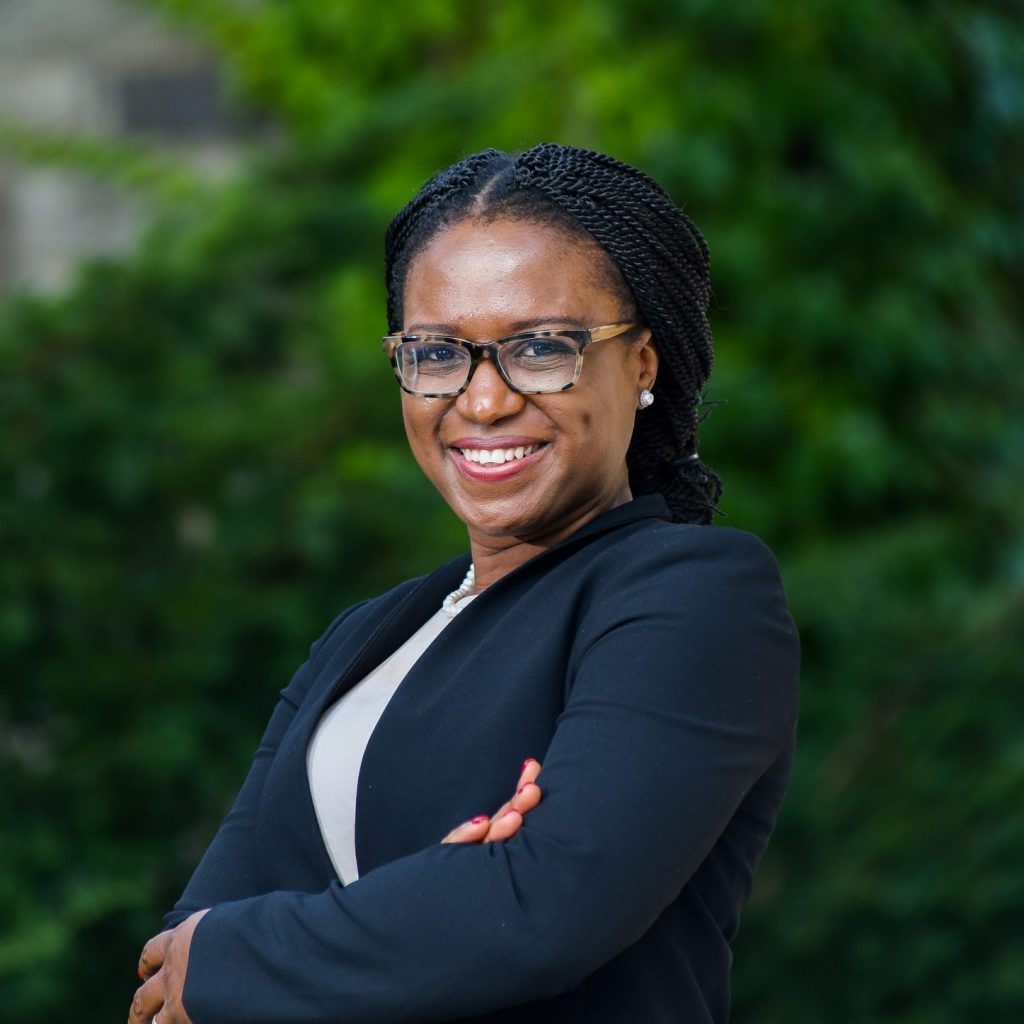
Carolina Law’s Artificial Intelligence Decision-Making Research Program (AI-DR) is one way the law school is preparing students to be leaders in responding to emerging digital technologies.
“I anticipate that the increased use of automated hiring technologies and surveillance technologies will continue to produce legal controversies at the intersection of law and tech,” says Carolina Law associate professor Ifeoma Ajunwa, who founded and directs the AI-DR. “The future of law and tech scholarship will revolve around instituting new legal governance regimes to manage emerging tech.”
The AI-DR Program examines ethical issues related to automated decision-making in hiring, criminal justice and education. Some automated platforms can facilitate employment discrimination against people in a protected class and make it harder to detect and redress bias. In published articles, Ajunwa has called for audits and other oversight of algorithmic hiring systems as safeguards against any bias.
For the current academic year, she is in Lagos, Nigeria, on a Fulbright U.S. Scholar Award, studying tech entrepreneurship and the role of law in enabling tech as a vehicle for economic development.
The AI-DR Program received a major boost in 2021 with two unrestricted gifts from Microsoft. The support will help advance the program’s objectives and broaden its impact on tech policy research in the U.S. and Africa.
In December, the AI-DR Program launched a clearinghouse of research materials for scholarship related to AI and the law, which Ajunwa says “will be a tremendously helpful resource for scholars.” The searchable database includes legal scholarly articles, documentaries, books and other media.
The program’s research agenda will contribute cutting-edge insights with wide implications about automated decision-making. With the vast reach of automated platforms across multiple fields, the need for AI-DR research is growing. Among other impacts of the technology, “Automated decision-making tools are determining which applicants get called for an interview and are used to make other impactful decisions that weigh on liberty and economic inclusion,” Ajunwa says.
The AI-DR will use a multidisciplinary approach to train students in research with applications in policymaking, industry, academia and other areas. Ajunwa hopes to develop a channel through Carolina Law for students in Kenya, Nigeria and South Africa to study and do research in the U.S.
“I was motivated to found the AI Decision-Making Research Program by the overwhelming outpouring of interest regarding law and tech issues that law students have shared with me,” Ajunwa says. “There is a great need to create a pipeline of lawyers who are well-versed in understanding the technical capabilities of emerging technologies and also the legal issues attached.”
Cryptocurrency
There’s a reason computer hackers often want their victims to pay them in bitcoin, the most widely used cryptocurrency, or digital currency: it’s hard to track and isn’t governed by anti-money-laundering laws. As this currency gains traction in the U.S. and globally, it raises issues about ethics, consumer protections, and enforcement of financial crimes.
Relying on complex computational security methods, “Many digital currencies were not built to be regulated by laws, but by computer code,” says Raina Haque ’12, a professor of practice of technology at Wake Forest University School of Law. “Bitcoin in particular was developed to operate extrajudicially.”
With no safeguard such as FDIC insurance, “That’s what’s concerning about some forms of cryptocurrency,” says Haque, who focuses on computational law and emergent technologies. “We have this new way of transaction where much of the old-world regulation is replaced with computer code that controls transaction executions. Can old-world safeguards be replaced with code?”
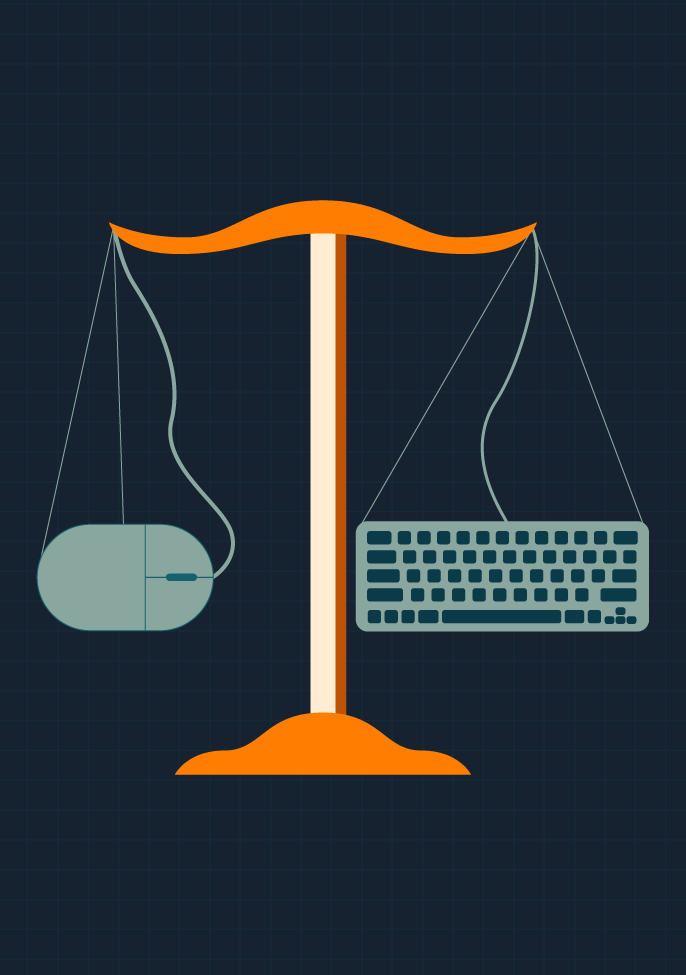
New cryptocurrencies are being developed “to more effectively obfuscate identity and transacting,” a challenge to financial enforcement, Haque says. “There’s always going to be uses of the technology that can operate outside of the law. There’s always going to be cryptocurrency that’s used to enable pretty terrible things and is designed to be untraceable.”
As cryptocurrency evolves, some nations and regulated banks are examining how to utilize components of blockchain-based cryptocurrencies within the structure of law. Some countries are exploring nationally backed cryptocurrencies to enable not only efficient transacting, but efficient enforcement mechanisms.
Cryptocurrency’s growing popularity has implications for all areas of law. “Even for basic client counseling, for quotidian matters, like assets in relation to divorce, this might come up,” Haque says.
Attorneys in the tax and financial law fields are following digital currency, while laws related to property and transactions may have to be re-examined. And the U.S. Securities and Exchange Commission and other government entities have created divisions to examine cryptocurrency.
Other aspects of digital currency to consider are whether lawyers can be paid in cryptocurrency and accept it in a client’s trust account. “How will these issues be addressed? Everyone is scratching their heads about that,” Haque says.
She notes that “Lawyers who feel they know little about this need to take time to start learning about it. A lawyer’s purpose is to be the interface between the general public and whatever is important to the general public.”
Video Evidence
Which is more compelling evidence, content presented in a long report or a video that features someone reading his poetry? Carolina Law students in the school’s Military and Veterans Law Clinic chose the video, and they’re using it to challenge the status quo.
Students first developed videos in the 2020-2021 academic year and submitted them to a military-discharge upgrade board at the end of the spring 2021 semester. Most of the clinic’s work is representing clients in applying for a recharacterization of their military discharge, so they can be entitled to a wide range of benefits from the U.S. Department of Veterans Affairs.
One clinic client in the Triad writes poetry, and students were so moved by it that they decided to record him reading his poems in a 15-minute video as part of his military-records correction application.
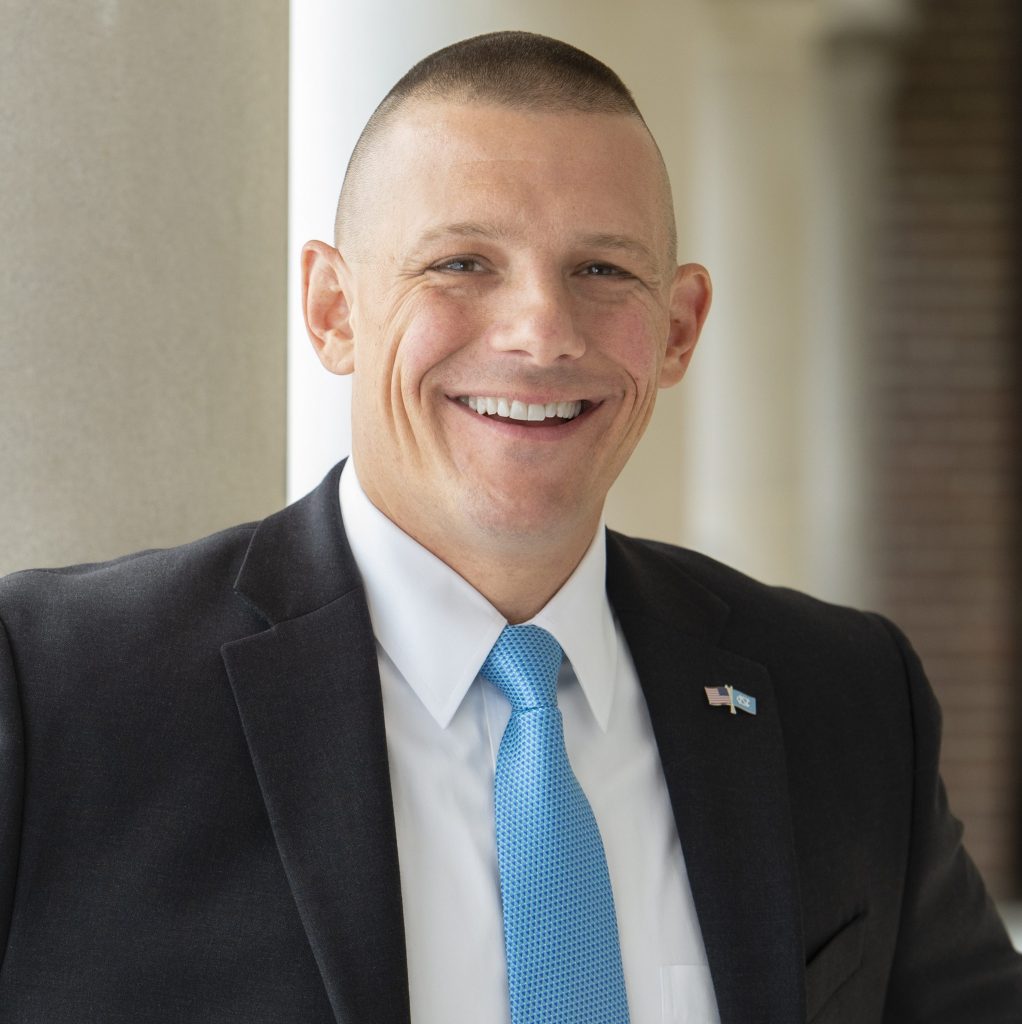
The clinic is spearheading the innovation of video evidence in the military realm. Written evidence has been the norm, but the military board that considers Carolina Law’s clinic applications has neither authorized nor prohibited video evidence. Carolina Law represents the Triad client jointly with the Wake Forest Veterans Legal Clinic.
“Because of the pandemic, everything transitioned to digital during the last academic year. We were forced to use Zoom and other digital means of learning and advocacy. That naturally morphed to advocacy for our clients,” says John Brooker ’03, clinic director and clinical professor.
“In this age where everyone has a cell phone and storage of video content is essentially free, the requirement that an applicant must submit their case in writing can be a total obstacle to telling the story of applicants,” he says. “The biggest challenge is to get this type of video evidence widely accepted and understood as a valid means for an applicant to express their story…and to create the systems so such evidence can be submitted securely and properly.”
The clinic soon will submit another client’s 15-minute video affidavit, based on information Brooker and a student gathered from him at his home. “It tells his story in his own words with his own mannerisms and his own emotion,” Brooker says.
For students, working with video evidence is a way to broaden their advocacy skills beyond the conventional law school pedagogy. That’s one way Carolina Law is preparing students to be leaders who bring new approaches to the legal field.
“We’re trying to get out in front of the curve and teach our students in an innovative way, so they’re prepared for their jobs after law school,” Brooker says. “We’re pushing the envelope with this type of evidence submitted,” but eventually, reliable technology will make video evidence widespread.
If the military doesn’t accept Carolina Law’s video evidence, the clinic will take the next steps.
“If we have to fight, we will fight because we see no legal justification for not allowing this evidence since the cost to do it is free,” Brooker says. “And skilled lawyers are going to have to understand this evidence and, in some cases, master it depending on their area of law.”
Recruitment
The impacts of the digital age on the legal profession extend to recruitment of Carolina Law students for summer internships and for positions after graduation.
Legal employers in all sectors are using online platforms to find talent, and that gives students access to more employers around the U.S. and sometimes saves the expense and time of traveling for interviews.
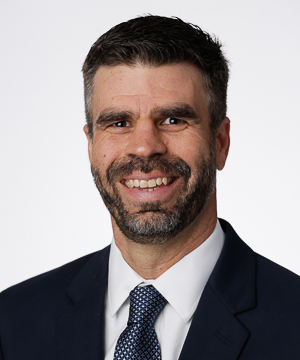
“It’s faster. It’s cheaper. I see this sticking around,” says Rob Birrenkott, assistant dean for career development at UNC School of Law. “The pandemic radically accelerated the buy-in on this.”
And Birrenkott’s office is all-in, with a number of digital recruitment initiatives for students and options for them to connect with classmates remotely.
The Meet the Tar Heels event his office hosts, which was virtual in December, had a 50 percent increase in employer participation and a significant rise in student involvement. The remote format presented students with more geographic regions and legal settings.
The event was held after exams, so most students joined in from home. “But you could have been on campus, too, because it didn’t matter,” says Birrenkott, noting that Meet the Tar Heels probably will remain remote now.
In another initiative that broadens access, UNC is among 26 law schools around the country in the new National Public Law School Alliance. More than 60 employers in different law sectors have registered for the coalition’s first recruitment event Feb. 25.
“Employers looking to expand their diversity or the geographic regions from which they recruit…will see a deep talent pool,” Birrenkott says. “And we can maintain those employer relationships year over year.”
A new interactive map for employers that Birrenkott’s office created will help employers and students build relationships. The map has employer profiles with information about the practice, summer internships, how to apply for positions and other details. The map gives employers a permanent presence with students, who can sort the database by employer, practice area and other criteria.
“It makes the hidden job market more visible to our students and increases their efficiency with finding internships,” Birrenkott says.
With pandemic precautions about in-person interaction, the career development office has created a student-to-student summer experience map about internships. The digital tool is sortable by diversity criteria, demographics and the type of firm or organization where students worked. Students’ contact information is included.
Another digital tool is the alumni mentor database, which helps students connect with Carolina Law graduates and friends willing to be a resource.
Before students even get to campus, they can work on their legal resumes and other job-search basics with a digital syllabus of resources that helps prepare them for the fall semester.
It’s too soon to know if the digital recruitment trend will be followed by remote employment for many students after graduation.
“I don’t think recruiting will ever be done 100 percent in person again, and I’m not sure if work will have to be done in person again,” Birrenkott says. “A lot of firms have discovered they can do quite well operating in a strictly digital environment. The pandemic has required us to close some doors but has allowed us to open some windows.”
